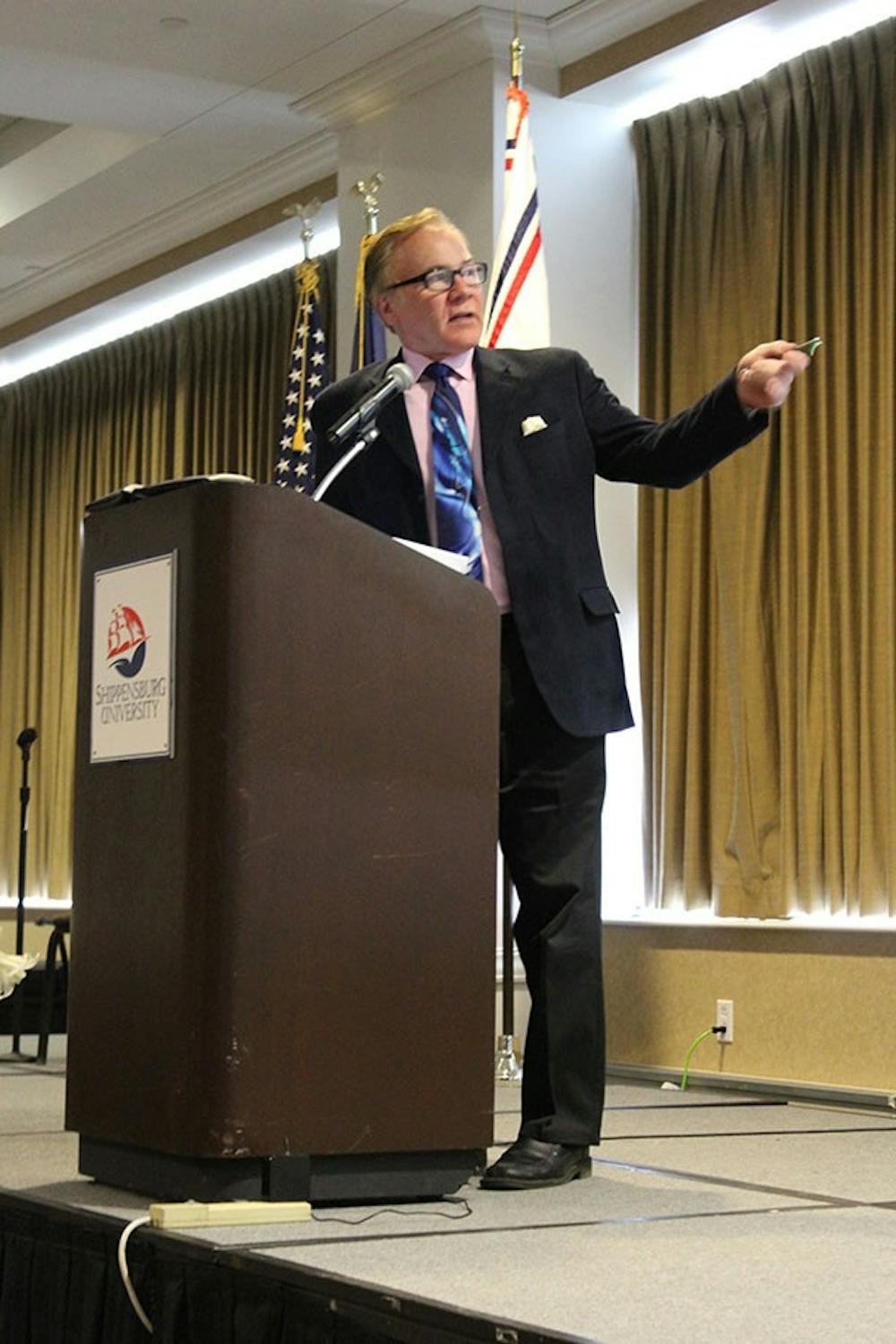Everybody wants to lead a life of significance. Some people do this through their careers, volunteer work or daily acts of kindness.
Professor Jay Albanese from Virginia Commonwealth University challenged Shippensburg University students to live a life of significance by putting an end to human trafficking.
Albanese came to SU as the keynote speaker for “The Effort Against Human Trafficking” event that the Criminal Justice Honors Society, Alpha Phi Sigma Pi, put on for criminal justice month.
The Tuscarora Room of Reisner Hall was packed with students, faculty and other supporters on March 31. Criminal justice professor and honors society adviser, Michele Bratina, explained how more and more people are affected by human trafficking.
It is not just a problem in other countries or big cities. This past March, five men from Chambersburg and one man from Harrisburg were charged with alleged sex trafficking of minors, according to the Public Opinion and Fox 43.
Human trafficking includes forced labor and selling people for sexual acts. It can affect anyone of any age or gender.
Albanese argued that the major problems people face in the world, like human trafficking, are the result of human action.
The difference between human trafficking and provision of other illicit services is that people can be used again and again for profit, while other resources eventually run out.
Although there are people advocating for an end to human trafficking, it is hard to see if any progress is being made, because the numbers are inaccurate, Albanese said.
While in Ukraine, Albanese saw advertisements in newspapers offering the chance to meet a western gentleman or become a nanny in another country. Those advertisements were scams for desperate people.
“They’re in a bad place, they want to get out and you exploit their vulnerability,” Albanese said. In most cases, women are tricked into becoming victims.
As one slide from Albanese’s PowerPoint slid to the next with the sound of chimes, the audience learned more about the growing problem that more than 700,000 people face per year.
In an interview study based on 371 women and girls, 35 percent were tricked by a promise of marriage, 35 percent were willing victims (took the chance to be smuggled out of their country), 25 percent were given false job offers and 5 percent were sold/abducted.
You would be surprised who you would agree to marry in order to get out, Albanese said.
After the lecture, dinner and silent auction, the event transitioned into a candlelight vigil, held in honor of victims.
Many students left after the dinner to head to class or other activities, but the people who stayed had the chance to hear the stories of those who suffered from human trafficking.
Soft piano music filled the room as the candles were lit and conversation died to a murmur.
Student Emma Hergenroeder read a poem, called “Finish Line,” about a girl raped by her mother’s boyfriend.
“None of this would have happened if I had help from the start,” Hergenroeder read.
United Campus Minister, the Rev. Jan Bye, stepped up to share snippets of victims’ stories. She spoke about a 16-year-old who contracted AIDS, a child soldier and forced laborers. Between pauses of speech, audience members would respond, “Is it nothing to you, all you who pass by? Look and see if there is any sorrow like my sorrow.”
Natalie Daratony, Coalition for Christian Outreach, cushioned these harsh words of reality between two guitar and vocal performances.
Erin Regan, a representative from Compassionate Humans Against Trafficking, spoke about her experience in New York City when one of her students was almost taken.
Regan is a youth minister, and in her ministry she likes to take trips with students. While in New York City with a group of girls, Regan felt secure enough to look away from the group for just a second.
When she turned around, a strange man was holding the arms of one of the girls — she was frozen.
“I can give you a better life,” he said to the girl. Regan stepped forward and pushed the man away. Through this experience, Regan learned a valuable lesson about human trafficking.
We can fight it.


The Slate welcomes thoughtful discussion on all of our stories, but please keep comments civil and on-topic. Read our full guidelines here.